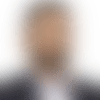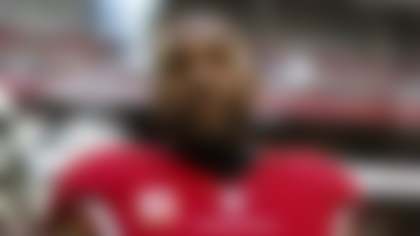The NFL on Wednesday announced its final 2024 playing rule, bylaw and resolution proposals to be voted on at next week's Annual League Meeting, which takes place March 24-27.
The league's competition committee is presenting six rule changes, which accompany four proposed by NFL clubs. The committee's proposals for a new kickoff format and a ban on the hip-drop tackle highlight the potential changes for 2024.
Proposed for one year only, the new kickoff rules would feature new alignments for the both the kicking and receiving units. A proposed "landing zone," the area between the receiving team's goal line and its 20-yard line, would prompt action off the kickoff if the ball were to land there.
Kickoffs would remain at the 35-yard line but the remaining 10 players of the kicking unit would line up at the opposing team's 40-yard line. The receiving team would line up with at least seven players in the "set up zone," a five-yard area between their own 35- and 30-yard lines, and a maximum of two returners are permitted to line up in the landing zone.
Once the ball is kicked off, the kicker cannot cross the 50-yard line until ball touches the ground or player in landing zone or end zone, and the 10 kicking team players cannot move until the ball hits the ground or player in the landing zone or the end zone. The receiving team players in the set up zone also cannot move until the kick has hit the ground or a player in the landing zone or the end zone, but the returner(s) may move at any time prior to or during the kickoff.
Kickoff scenarios under the committee's proposal would have the following rules:
- Kickoffs that hit the landing zone must be returned.
- Kickoffs that hit the landing zone and then go into the end zone must be returned or downed by the receiving team. If downed, the receiving team would get the ball at its own 20-yard line.
- Kickoffs that go into the end zone and stay inbounds that are downed would give the receiving team the ball at their own 35-yard line. Kickoffs that go out of the back of the end zone (in the air or bounces) would also be a touchback at the receiving team's 35-yard line.
- Kickoffs short of the landing zone would be treated like a kickoff out of bounds and the receiving team would get the ball at its own 40-yard line.
Set up and landing zones will not change with any penalties that carry over to kickoffs, nor will the alignment of the 10 kickoff team players and all the receiving team players -- only the spot of the kick would move. Penalties on scoring plays will not carry over and be taken on the point after attempt.
Onside kicks will also be played out with the new set up and landing zones under the proposal from the competition committee. The trailing team has the opportunity to declare an onside kick to the officials from the fourth quarter on. Current onside kick rules apply, and if the ball goes beyond the set up zone untouched, the kicking team would be penalized and the returning team's drive would start at the 20-yard line.
The NFL added that the special teams working group will continue to work with the officiating department to examine any necessary approved rulings and/or additional language that may be necessary to support this new kickoff rule if passed. This language would be vetted with the clubs, circulated for comment to all the clubs, and finalized by May.
As it pertains to the hip-drop tackle, the competition committee defined the play as:
- If the defender "grabs the runner with both hands or wraps the runner with both arms; and unweights himself by swiveling and dropping his hips and/or lower body, landing on and trapping the runner's leg(s) at or below the knee."
The penalty for a hip-drop tackle would be 15 yards and an automatic first down.
Below is the complete list of the 2024 playing rule proposals that will be voted on at the Annual League Meeting:
- By Detroit; amends Rule 15, Section 1, Article 1, to protect a club's ability to challenge a third ruling following one successful challenge.
- By Philadelphia; amends Rule 9, Section 2, Article 2, to eliminate the first touch spot after the receiving team possesses the ball.
- By Philadelphia; amends Rule 6, Section 1, Article 1, to permit a team to maintain possession of the ball after a score by substituting one offensive play (4th and 20 from the kicking team's 20-yard line) for an onside kickoff attempt.
- By Indianapolis; amends Rule 15, Section 3, to permit a coach or replay official (inside of two minutes) to challenge any foul that has been called.
- By Competition Committee; amends Rule 14, Section 5, Article 2, to allow for an enforcement of a major foul by the offense prior to a change of possession in a situation where there are fouls by both teams.
- By Competition Committee; amends Rule 15, Section 3, Article 3, to include a ruling of a passer down by contact or out of bounds before throwing a pass as a reviewable play.
- By Competition Committee; amends Rule 15, Section 3, Article 9, to allow a replay review when there is clear and obvious visual evidence that the game clock expired before any snap.
- By Competition Committee; amends Rule 12, Section 2, to eliminate a potentially dangerous tackling technique.
- By Competition Committee; amends Rule 12, Section 2, Article 6, to expand the crackback prohibition to players who go in motion and move beyond the center to block a defender at or below the knee.
- By Competition Committee; for one year only, amends Rule 6, to create a new form of a free kick play that is designed to: (1) resemble a typical scrimmage play by aligning players on both teams closer together and restricting movement to reduce space and speed; and (2) promote more returns. Permits the Replay Official automatically review whether a free kick legally touched the ground or a receiving team player in the landing zone












